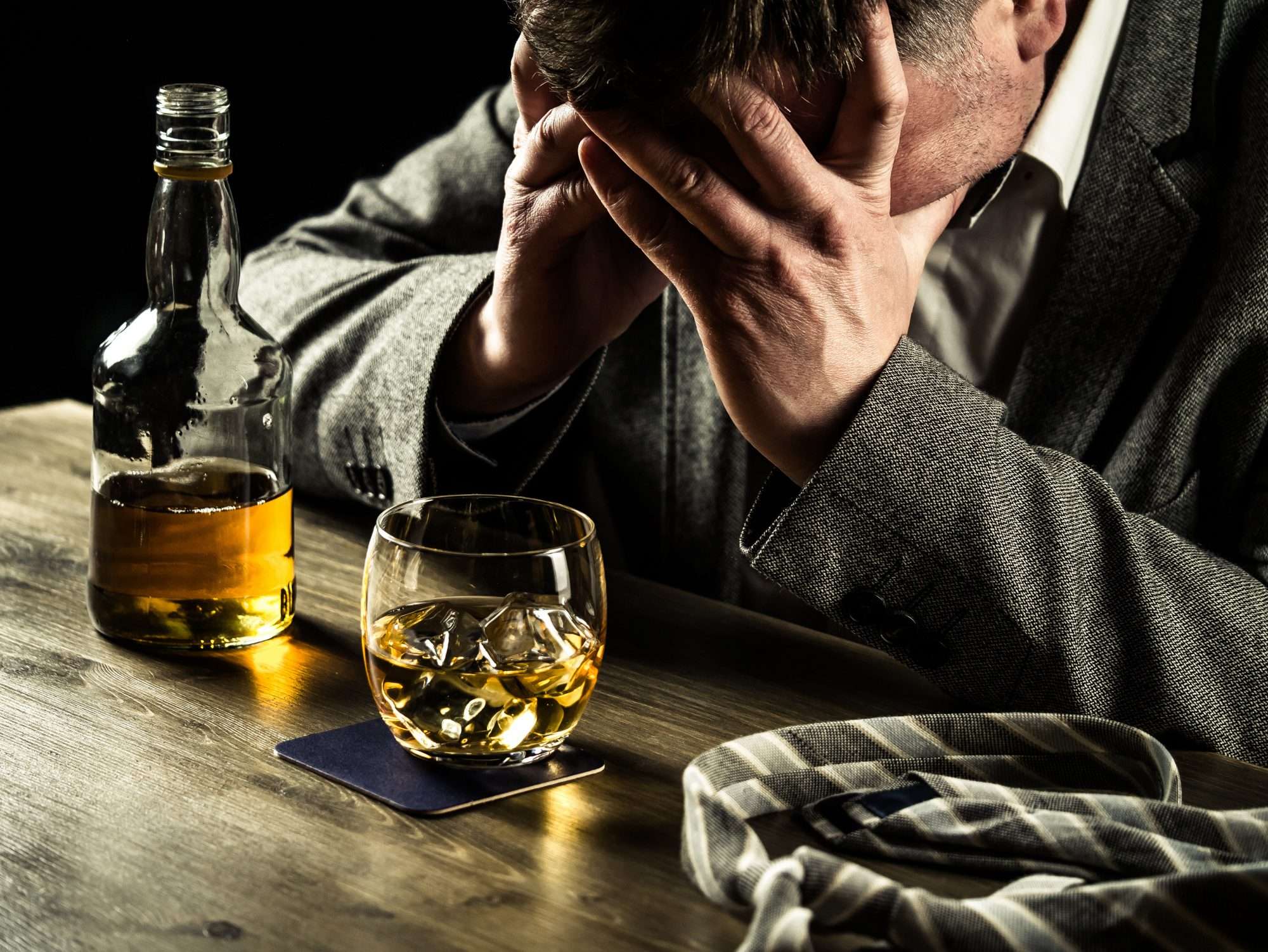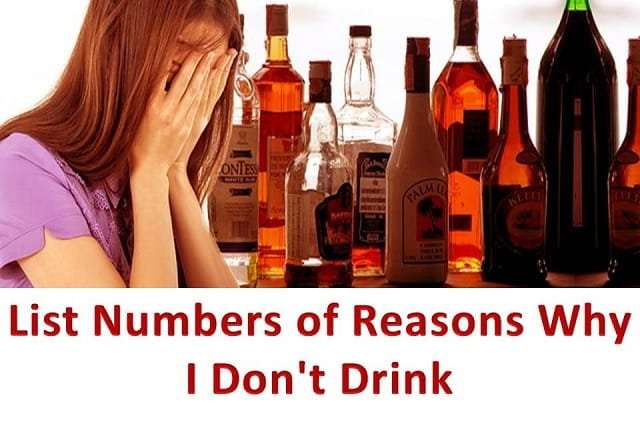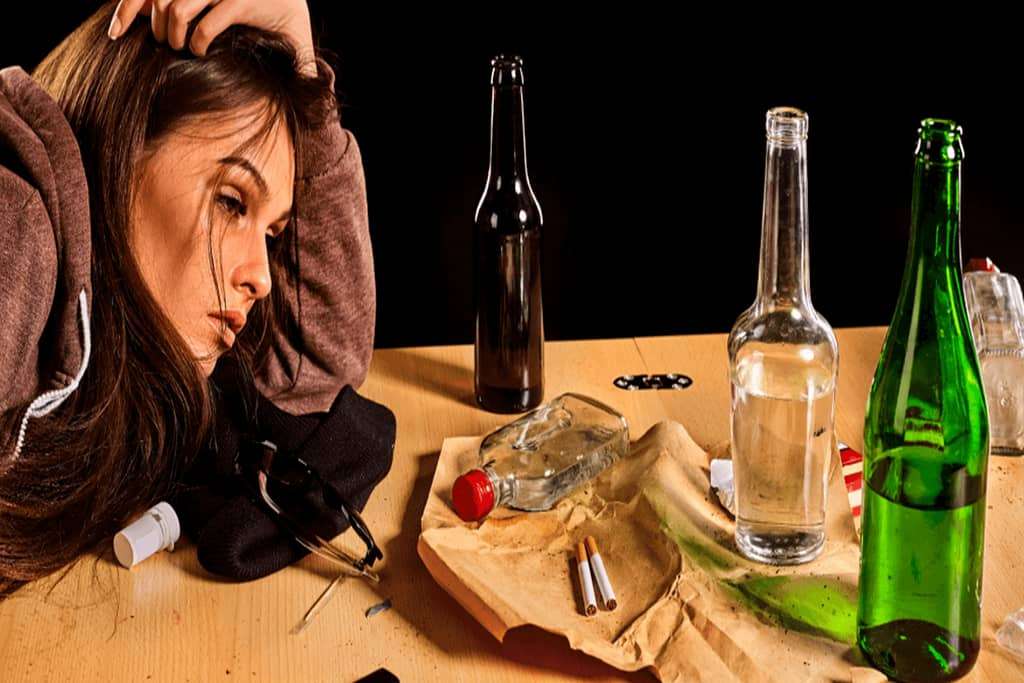Alcohol Addiction Is Treatable
Medical science views alcohol addiction as a chronic brain illness. However, this illness is treatable. In fact, doctors can use both medication-based and behavior-based methods to provide relief. Medications currently approved for alcoholism treatment can help affected people do things such as:
- Deal with the effects of alcohol withdrawal
- Reduce their alcohol intake , and
- Increase their odds of maintaining abstinence after achieving initial sobriety
Behavioral therapy can help people in treatment:
- Gain an understanding of their motivations for drinking
- Recognize the psychological and social triggers that lead to alcohol consumption, and
- Learn how to develop effective coping mechanisms that limit the impact of psychological and social stresses
Take Control Of Your Fate
Even though alcohol is an addictive substance on a physiological and psychological level, we ultimately can have power over our own fate. Understanding why alcohol is addictive can help set the foundation for preventing the development of addiction. Additionally, someone who does struggle with alcohol addiction does not have to succumb to the substance indefinitely. Those struggling with why they are addicted to alcohol can get help from a professional addiction treatment program. Get started today!
Who Are Most Vulnerable To Alcohol Addiction
Alcohol addiction can impact anyone who habitually abuses alcohol. No mind or body is immune to the addictive effects of alcohol. Studies show that there may be a genetic predisposition to alcohol addiction in certain people, primarily those with members of the family who have struggled with alcoholism.
Also, people with stressful lives are more likely to turn to alcohol to cope. It is also common to see alcoholism develop in people who are in environments where binge drinking and alcohol consumption are everyday occurrences, such as on college campuses and in the bar/restaurant industry.
You May Like: Why Is Heroin So Addictive
Why Should We Be Concerned About Aud And Alcohol Addiction
Alcohol consumption is linked to many health and social consequences, including interference with personal relationships, heart and liver diseases, cancers, motor vehicle collisions and other accidents, alcohol overdose, violence, homicide, and suicide. If a person has AUD, particularly if it is moderate to severe and involves alcohol addiction, they are more likely to regularly consume alcohol in levels associated with these effects on health.
Young people are especially at risk for AUD. Using alcohol during adolescence may affect brain development, making it more likely that they will be diagnosed with AUD later in life. However, most people with AUDno matter their age or the severity of their alcohol problemscan benefit from treatment with behavioral health therapies, medications, or both.
Finding Your Way Back To Reality

Even with all the research related to substance use disorders, finding your way out of alcoholism comes down to making hard choices. But the future can be bright for those who choose wisely.
If you or a loved one is addicted to alcohol, wed like to apply our knowledge and skills to help you get better. At Michaels House, our world-class facility applies cutting-edge science to develop new and to help our patients.
But that doesnt mean that tried-and-true techniques, such as Alcoholics Anonymous meetings, are thrown out the window. No, we are too pragmatic for that. Anything that can help our patients is up for consideration. And we consider the whole person when customizing a treatment program for each unique individual. We invite you to contact us at to speak to an admissions coordinator and start heading down the path toward health and happiness now.
You May Like: Is 0.5 Ativan Addictive
Is Craving Alcohol Normal
A craving is a sensation or a thought or a feeling that urges one to drink. There is no way to classify such cravings. Anything could remind someone of drinking and trigger a craving. There are two sorts of triggers that could cause someone to crave alcohol.
- External triggers
An external trigger is a person, place, thing that could remind a person of drinking.
- Internal triggers
An internal trigger may be more difficult to spot, because they simply can just pop up in ones mind. If a mind stops to deliberate on it, which it usually does, the trigger will become more persuasive, quickly developing into a craving.
One can feel a craving to drink when something good happens, and they feel compelled to go out and celebrate. On the flip side, when something bad happens, cravings could arise in an attempt to soothe the situation.
Craving alcohol is normal. For starters, if one drinks with their friends and has a good time, and has learned to associate alcohol with fun, they may frequently feel compelled to drink. In a more scientific explanation, alcohol activates neurons in the brain responsible for pleasure. A natural instinct of humans is to want to prolong and intensify feelings of euphoria.
Is Binge Drinking Considered Heavy Alcohol Use
Binge drinking is a type of alcohol consumption in which a person’s blood alcohol concentration exceeds 0.08 percent. For men, this means drinking more than 5 drinks in two hours. For women, this means drinking more than 4 drinks in two hours.
Not everyone who binges drinks has an AUD, but they are at higher risk for developing one.
Don’t Miss: How To Know If Someone Is Addicted To Alcohol
Withdrawal Deterrent To Sobriety
Many people who have attempted to stop drinking abruptly after long periods of routine heavy alcohol use find themselves unexpectedly undergoing detoxification. That process can manifest a range of unbearable physical and psychological symptoms, including these, among others:
- Headache
- Depression
- Seizures
Physically and mentally, going through alcohol withdrawal can be an excruciating experience that can even be fatal in some cases. For many people who undergo the process, the body and brain also crave alcohol intensely.
So, its not surprising that fear of withdrawal and the sense of need to avoid it causes many alcoholics to continue drinking. They accept the burden of sustaining the disease rather than willingly subject themselves to suffering through withdrawal.
Why Alcohol Becomes Addictive
People drink alcohol to relax, in social situations, or to accentuate the flavors of food when dining. However, when a person continues a pattern of heavy drinking and alcohol misuse, they may not feel normal without it. The person has become physically and/or psychologically addicted. The user then experiences cravings for the same reward. Becoming addicted to alcohol stems from how alcohol affects the brains chemistry. It releases endorphins in the reward system of the brain, and eventually the body becomes dependent.
People can also become psychologically addicted. Substance abuse can provide temporary and unhealthy solutions from mental health disorder symptoms or even just stress. This coping mechanism of alcohol dependence can become a habit that is hard to break.
Read Also: How To Help People With Addiction
Alcohol And Other Drugs
Because it is so common in todays culture, alcohol is often abused alongside other drugs. As a CNS Depressant, alcohol poses a serious risk when mixed with other drugs of the same class like Benzodiazepines and some Painkillers. Alcohol on its own can be dangerous, but combining it with other substances can quickly prove lethal.
Final Stage: Addiction Treatment
This final stage is when loved ones usually know for certain that there is a problem. At this stage, the person themselves most likely realize it too. During this final stage of alcoholism, it is imperative the person seek help and stop drinking. The consequences of not doing so are deadly. However, whats important to understand and educate more people about are the early stages of alcohol use disorder. During these stages, treatment is effective and many who seek treatment in these early stages avoid many of the detrimental effects of alcohol for themselves and their loved ones. Evidence-based treatment for AUD works no matter how early or late in addiction you or a loved one are.
Read Also: Why Do Drug Addicts Itch
The Facts On Alcohol Abuse
Alcoholism is a disease defined by a dependency on alcohol as well as a loss of control and overuse that continues despite the consequences. Those that become addicted and abuse alcohol over long periods of time run the risk of serious physical harm, including organ failure and even death.
According to the most recent National Survey on Drug Use and Health, 6% of the US population were considered heavy drinkers. Other alarming alcohol stats from the survey include:
- As of 2017, over 140 million Americans consume alcohol thats more than 40% of the entire population.
- Out of those 140 million Americans, 66.6 million partook in binge drinking within a month of the survey, and 16.7 million were heavy drinkers during that time.
- Over 7 million teens admitted to drinking within a month of the survey, maintaining around the same average of underage drinking three years in a row.
- Roughly two out of every three individuals over the age of 12 perceived great risk of harm from having four to five drinks of alcohol every day.
- Approximately 14.5 million people developed a substance abuse disorder from alcohol in 2017.
Get Started On The Road To Recovery Today

Whether youre affected by alcohol addiction or any other substance-related problem, the certified professionals at Transformations Treatment Center can assist you with expert advice and treatment in a supportive environment. Our comprehensive programs help you recover sobriety and establish an enduring pattern of abstinence in the future.
You May Like: How Can You Help Someone Who Is Addicted To Drugs
Why Is Alcohol Addictive For Some And Not The Others
It is not surprising that many are questioning Why is alcohol addictive for one individual and does not lead to an addiction for others?. Having studied people with a severe form of addiction, doctors found that they have extremely low levels of endorphins the so-called hormones of joy and pleasure. The production of hormones such as serotonin and dopamine is influenced by both hereditary features of neurotransmitter metabolism and external factors for example, the consumption of alcohol and various stresses.With the very first use of alcohol, addiction in people with a deficiency of the hormone of joy occurs faster and in a much more serious form. As a rule, people who have tried alcohol sooner or later return to its use during periods of stressful situations, when the level of endorphins drops sharply. After all, the brain remembers the state of euphoria and, in moments of strong psychological stress, requires a quick replenishment of the dopamine and serotonin deficiency.Yet, it is necessary to take into account not only heredity but also social factors. Since alcohol is easily accessible, it is difficult for any person, regardless of genetics, to resist the imposed lifestyle. In families, where a person sees a negative attitude to alcohol since childhood, the risk of becoming addictive is much lower. Although, in any case, parents who use or have used addictive substances create a predisposition for their child to become addicted to it.
About Author
Scope Of Alcohol Misuse And Dependence
Alcohol is one of the most misused chemical substances in the country which makes sense, considering alcohol is both highly addictive and legal. According to the National Institute on Alcohol Abuse and Alcoholism, roughly 85.6 percent of American adults have consumed alcohol at least once in their lifetimes. 69.5 reported drinking at least once in the past year, and 54.9 percent reported drinking at least once in the past month. Binge drinking patterns are also fairly common 25.8 percent of people over the age of 18 reported binge drinking at least once in the past month. Binge drinking refers to consuming an excessive amount of alcohol over a relatively short period of time. For women, binge drinking refers to consuming four alcohol beverages or more in a one hour time period for men, consuming five or more alcoholic beverages in a one hour time period.
We Are Here For You
Let Us Help You Heal
Our Drug & Alcohol detoxification experience is second to none.
Learn how we can help by speaking with one of our Treatment Advisors today.
Don’t Miss: What Do Drug Addicts Use Bleach For
Symptoms Of Alcohol Use Disorder
In the United States, 18 million adults have an alcohol use disorder .
You may have an AUD if you have experienced two or more of the following in the past year:
- Drinking more or for longer than planned
- Being unable to cut back on the amount you drink or stop drinking altogether when you were trying to do so
- Spending excessive time drinking or recovering from drinking
- Feeling a strong need to drink
- Drinking or being sick from drinking that interfered with life or responsibilities
- Developing a tolerance to alcohol’s effects
- Experiencing withdrawal symptoms 7
How First Responders Can Get Help For Alcohol Addiction
First Responders First understands the ins and out of alcohol addiction among first responders. They realize that first responders need specialized treatment to overcome the stigma of asking for help. Understanding that alcohol is an addiction, and there are steps you can take to overcome it, is one of the major realizations that allows people to begin the walk on the road to recovery. Let us help you on that walk. Contact us today.
We’ve got your six.Since 2019 we’ve helped hundreds of residents recover from addiction, resulting in the restoration of careers, relationships, and lives.
Eligibility & Admissions
Read Also: What To Do When Someone Is Addicted To Drugs
How Addictive Is Alcohol
Statistics show alcohol can be extremely addictive. In fact, alcohol addiction is much more common than drug addiction. Over 5% of people 12 and older had an alcohol use disorder in 2017, and nearly 30% of adults will struggle with alcohol use disorder at some point in their lives. If you are struggling with alcohol addiction, seek evidence-based interventions like a cognitive behavioral therapy program in Worcester, Massachusetts.
Alcohol Consumption And Social Influences
One of the reasons that AUDs are increasing so much is that alcohol and drinking are socially acceptableand even expectedin most communities. We are bombarded with ads for alcohol. These ads portray alcohol as not only harmless but as a way to have fun, enjoy family and friends, and let loose. And while many Americans can consume alcohol harmlessly, the millions who are unable to do so often succumb to the innocent portrayal of heavy drinking.
Many people who are living with an AUD, mistakenly think that really having a problem with alcohol would mean being that stereotypical alcoholic drinking on the streets or losing it all. That simply isnt the case. Alcohol use disorder is a progressive disease. There are stages of alcoholism and the sooner an individual gets help, the better for not only them but their families as well.
Recommended Reading: How To Get Over Phone Addiction
How Doctors Diagnose Alcohol Dependence
Doctors assess whether someone is dependent on alcohol by looking for signs that show their patient cant regulate their drinking, and that they have a strong internal drive to use alcohol.
The specific symptoms they look for are:9
- Impaired control over alcohol useThis might mean not being able to control how long a drinking session is, how much alcohol you consume when you do drink, how frequently you drink, being unable to stop drinking once you start, or drinking on inappropriate occasions or at inappropriate places.
- Giving increasing priority to alcoholIf you give precedence to drinking over other daily activities and responsibilities like family or work, if drinking is more important to you than looking after your health, or you carry on drinking despite negative consequences for your health or life.
- Unwanted physical or mental effects from drinkingShowing signs of increased tolerance to alcohol , experiencing withdrawal symptoms, or using alcohol to prevent or alleviate withdrawal symptoms.
A doctor may diagnose alcohol dependence if you show two or more of the above symptoms based on the ongoing pattern of how you use alcohol. Usually this is based on behaviour over the last 12 months or more, but alcohol dependence could be diagnosed based on continuous daily use of alcohol over a period of at least three months.
Physical Factors: The Release Of Endorphins

One factor that makes alcohol addictive concerns its effect on the human brain. Drinking alcohol causes the brain to release dopamine, a chemical known as a pleasure neurotransmitter when the brain releases dopamine, it causes a sensation of pleasure.
This could lead to feelings of joy, elation, reduced stress, and lower anxiety levels. Drinking alcohol on occasion s moderate to high levels of dopamine. However, as a person drinks increasingly more alcohol regularly, the brain and brain chemistry change.
With prolonged excessive alcohol consumption, the brain begins producing less of its own dopamine. This causes a reduction of dopamine receptors in the brain while simultaneously increasing the number of opioid receptors the more alcohol a person drinks regularly, the brain produces less of this pleasure chemical on its own.
To achieve that dopamine rush, a person must drink increasingly more alcohol a vicious cycle. The more they drink, the less dopamine they produce naturally, and the more they need to drink to achieve that same pleasant feeling. Most studies show that this is the root cause of alcoholism.
Recommended Reading: How To Get Over Addiction To Weed
What Are Treatment Options For Alcoholism
Treating alcohol addiction can be complex and challenging. In order for treatment to work, the person with an alcohol addiction must want to get sober. You cant force them to stop drinking if they arent ready. Success depends on the persons desire to get better.
The recovery process for alcoholism is a lifetime commitment. There isnt a quick fix and it involves daily care. For this reason, many people say alcohol addiction is never cured.
